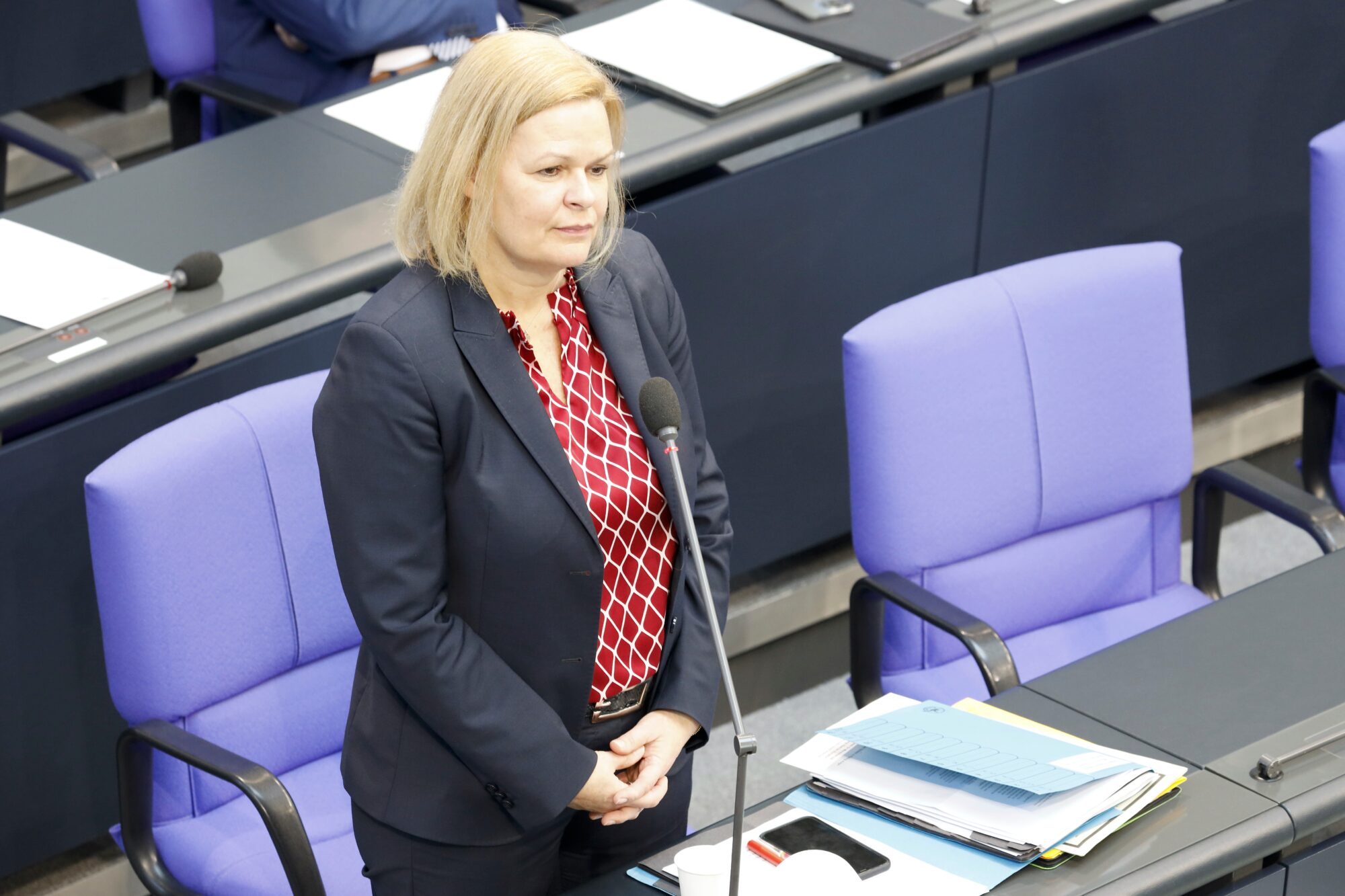
Germany’s left-globalist activist interior minister’s plan to dilute the meaning of German citizenship by drastically reforming the country’s citizenship law has opened a rift between the free-market, classically liberal FDP and the radically left-liberal faction of the ruling traffic light coalition, which is composed of the SDP and the Greens.
In the wake of the planned reforms initiated by Federal Interior Minister Nancy Faeser (SDP), the Free Democratic Party (FDP)—the traffic light coalition’s most moderate member—has voiced its opposition to proposed changes, which if implemented, would see two million migrants naturalized overnight and allow foreigners in Germany to more easily obtain citizenship, the Berlin-based newspaper Junge Freiheit reports.
“Now is not the time to simplify the citizenship law,” FDP General Secretary Bijan Djir-Sarai told the Rheinische Post on Monday. “So far there has been no progress on repatriation and combating illegal immigration,” he said, recalling that the “repatriation offensive” agreed upon by the traffic light coalition had not be initiated.
Referring to the interior minister’s radical plan, which seeks to accelerate the naturalization process and make it far easier to be naturalized, Djir-Sarai argued that gaining citizenship should come as a result of successful integration into German society. “It must not be at the beginning of the integration process.”
Like the FDP, opposition parties like the Union (CDU/CSU) and the AfD have also rejected the interior minister’s extreme proposal.
While speaking to the tabloid newspaper BILD about the proposal, CSU regional group leader Alexander Dobrindt said: “Bargaining German citizenship does not promote integration, but has the exact opposite purpose and will trigger additional pull effects in illegal migration.”
Baden-Württemberg’s Interior Minister Thomas Strobl, who also serves as the CDU’s state chairman, has also called into question Faeser’s radical plan, saying: “Citizenship is a valuable asset, something that comes at the end of an integration process, a clear commitment to the German state and its values.”
The Alternative für Deutschland (AfD) party has also rejected the plan.
Days ago, following statements made by Union politicians that signaled a clear opposition to the plan, the SPD urged the CDU and CSU to not block a reform to the citizenship law.
“The Union is getting down to business with its ideology from yesterday,” SPD parliamentary secretary Katja Mast said, accusing the Union of working to sew division “instead of looking for solution.”
The reform to the Citizenship law will be “adapted to reality,” Mast added. “Anyone who is well integrated should have the opportunity to naturalize earlier and more easily. That’s not only fair, it also makes sense.”
As The European Conservative previously reported, migrants will have the right to naturalize after three to five years instead of the previous eight under the new reform. Additionally, those seeking to be naturalized will not be required to give up their previous citizenship, as they are required to presently. Language and knowledge requirements for those over the age of 67 will also be abolished.
